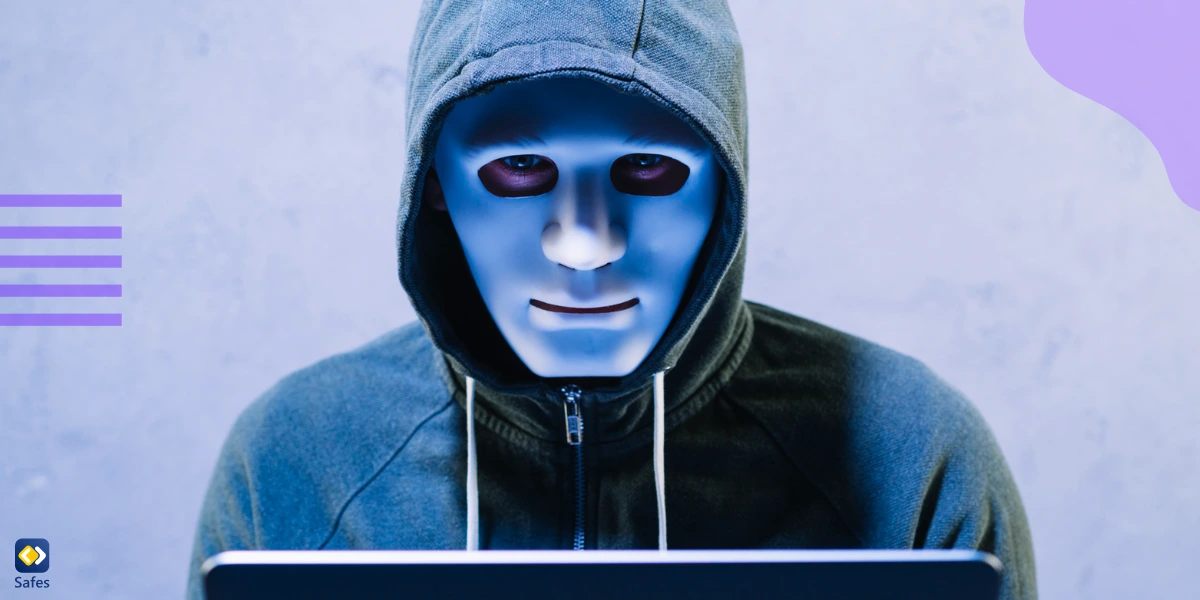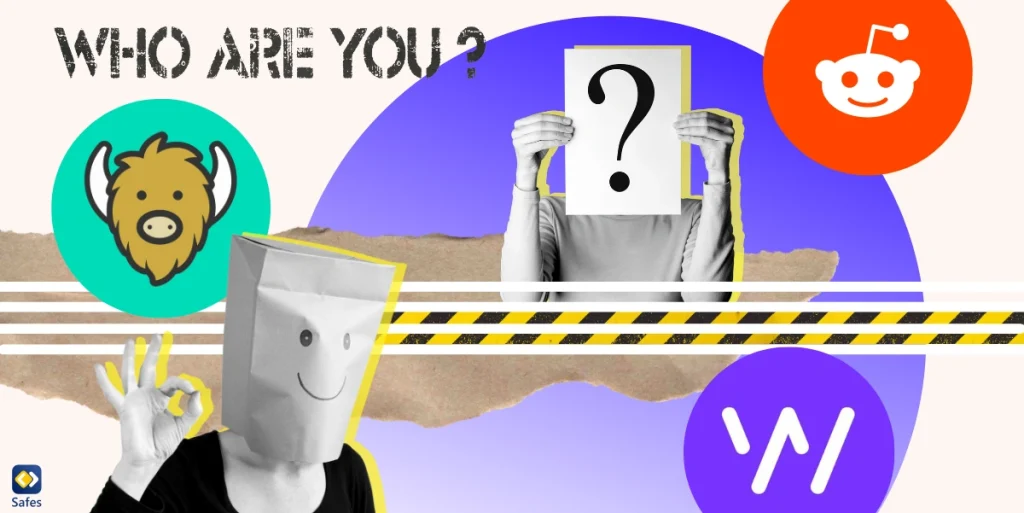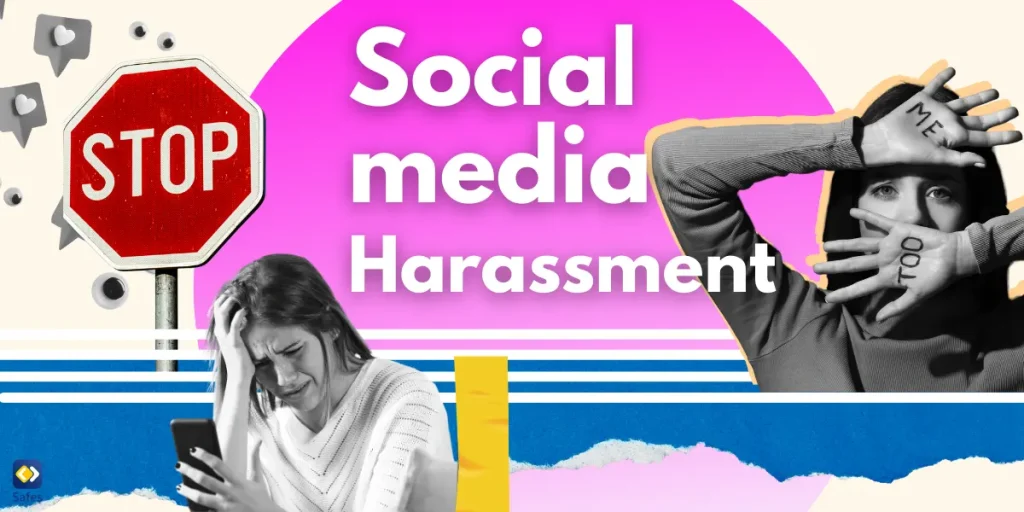In today’s online world, there’s a big draw towards keeping things on the down-low. That’s where anonymous posting apps come into play. These are the kind of messaging apps that let folks send anonymous messages, with no strings attached. It’s all about giving you a space to say what you want, without having to plaster your name all over it. This blog post is going to dive into the world of apps that allow users to share like this. We’re talking about the good, the bad, and everything in between. We’ll explore what makes these apps tick, why they might be appealing to your teens, and what you need to watch out for.
Download and Start Your Free Trial of the Safes Parental Control App
Exploring the Shadows: The Rise and Impact of Anonymous Posting Apps
With the growing concern over privacy, people are turning to apps for anonymous posting. These spaces, including Whisper, Yik Yak, Reddit, and 4chan, offer a way to share without the risk of being too exposed. These platforms have carved out a niche that stands apart from traditional social media networks. They offer a space where users can share thoughts, experiences, and questions completely anonymously. They, however, create an environment that is both liberating and fraught with potential pitfalls.
Why the Draw to Anonymity?
The drive towards these apps to make anonymous friends stems from a desire for a space where the constraints of identity do not bind you. Today’s popular social media often demands a polished, curated persona. Anonymous apps, however, offer a place to explore ideas and share thoughts without the fear of judgment or the need for social validation. This feature appeals particularly to younger audiences, who navigate the complex waters of identity formation and social interaction in the digital age.
There’s a silver lining to these platforms that often gets overshadowed by their darker aspects. Anonymous apps can be a real lifeline for those who aren’t ready to come out into the open with their struggles. These platforms offer a way to share what they’re going through, get advice, and even find resources from folks who’ve been there. Furthermore, in parts of the world where speaking up can land you in hot water, anonymous apps offer a vital channel for whistleblowing. They allow individuals to shed light on injustices, corruption, and other societal issues without putting themselves at risk.
Navigating the Anonymity Landscape
The functions of these apps and platforms are manifold. They usually facilitate completely free private chats, enabling users to connect on a more personal level. They sometimes incorporate group chats and broader forums for sharing ideas and experiences. The option to remain completely anonymous is a pivotal feature that defines user experience on these platforms. It’s this blend of privacy and community that makes apps like Whisper, Yik Yak, and others stand out from the crowded social media landscape.
The mechanisms for interaction and connection are varied on these platforms. On apps like Whisper, users can craft messages or “whispers” that are visible to a wide audience. They’re often accompanied by thematic images to add depth to their confessions. Yik Yak, as another example, operates with a hyper-local focus. This app allows messages to appear in community feeds based on geographic proximity. Meanwhile, 4chan takes anonymity further. It completely gets rid of user accounts for a system where posts are typically shared without any identifier at all.

Controversies Surrounding the Anonymous Posting Apps
Controversies and challenges surrounding anonymous posting apps are not new. These apps let people speak freely and make it easy for some to bully or troll without facing consequences.
Moreover, the anonymity in these apps can sometimes encourage the sharing of harmful content. Racism and cyberbullying are significant concerns on anonymous posting platforms. Yik Yak serves as a notorious example. As mentioned before, YikYak is designed to be a local bulletin board for users to post anonymously. However, it quickly became a subject of controversy due to instances of racism, threats, and bullying.
Its anonymity feature often facilitated a toxic environment that particularly affected schools and universities. Reports of racist threats and cyberbullying incidents in these environments lead to widespread concern among educators, parents, and law enforcement agencies. This led to the app being shut down, though it was later relaunched.
This example underlines the complex nature of anonymous posting apps. While they serve as outlets for freedom of speech and creativity, they also pose significant risks. The app store presence of such apps, offering real-time anonymous chat capabilities, continues to raise questions.
Risks Associated With Anonymous Posting Apps for Teens
Anonymous posting apps offer kids and teens a platform for unfiltered expression. They, however, open the door to risks such as cyberbullying, inappropriate content, and encounters with online predators.
These apps have gained popularity among young people for their ability to connect users anonymously around the globe. In these apps, they feel the freedom to discuss shared interests without the constraints of revealing their identity.
But the same feature that makes these apps appealing—anonymity—also complicates efforts to ensure user safety. Anonymity can embolden users to engage in harmful behavior. That’s because they know they’re less likely to be held accountable. This environment can be particularly detrimental to teens’ mental health. In these spaces, kids and teenagers are more susceptible to negative feedback and cyberbullying. The psychological impact of such experiences can’t be denied. Young people’s self-esteem is especially vulnerable during these formative years.
Study Insights
A Pew Research study shows only a few teens, about 11%, use apps like Yik-Yak and Whisper, with girls and Hispanic teens a bit more active. Despite worries about misuse, these apps can be great for sharing support and exploring ideas. As parents, staying up to date with these apps and chatting with your teens about safe and thoughtful online behavior is key. This helps them navigate the online world more safely and positively.
What Parents Can Do
Here’s a list of practical steps parents can take to safeguard their children when using anonymous posting apps:
- Open Dialogue: Encourage honest conversations about what apps they are using and their experiences online. When you find apps like Whisper on your teen’s phone, start conversations about the risks of talking to strangers online even if you don’t feel comfortable.
- Monitor App Usage: Keep an eye on the apps your children download from the app store. Apps like our parental control app, Safes, can help parents monitor app usage on their child’s device.
- Educate on Personal Information Safety: Teach your children the importance of not revealing personal information. These include their full name, address, or school. Talk about times when sharing too much personal info on apps like Yik Yak caused problems for some users.
- Review Privacy Settings: Together with your child, go through the privacy settings of each app. Ensure they’re set to the maximum level of privacy. For example, show them how to disable location settings on apps that don’t require them for core functionality.
- Discuss the Risks of Inappropriate Content: Talk about the potential for encountering inappropriate content and how to respond to it. Share guidelines on what to do if they come across something disturbing or inappropriate online.
- Encourage Critical Thinking: Teach your children to question the reliability and motives behind anonymous posts or messages. This teaches them to think critically and navigate online content wisely.
- Report and Block: Show your children how to report and block users who engage in inappropriate behavior. Show them how to use Discord’s report feature for inappropriate shares or block someone who bothers them.
- Create a Family Media Plan: Develop a family media plan that outlines rules about the use of apps and the internet. This may include time limits, app restrictions, and the types of activities that are encouraged or forbidden.
- Stay Informed: Regularly update yourself on the latest apps and online trends among teens. Websites like our blog offer reviews and age recommendations for chat apps and games to help parents make informed decisions.

Safes: Making Anonymity Less Dangerous
Parental controls are key for keeping your kids safe online. Both iPhone parental controls and parental controls on Android are basic tools to stop kids from downloading apps that might not be safe. But there’s a more powerful option out there.
Check out our parental control app, Safes. It goes beyond just blocking apps. With Safes, you can see if your kids are trying to look for or use risky anonymous messaging apps. You can watch what they post and step in early to keep them safe. Plus, Safes has real-time tracking to help you know where your kids are when they’re outside.
To beef up your kids’ online safety, give Safes’ free trial a try. It’s available for both iOS and Android.
Wrapping Up
In conclusion, navigating the waters of the anonymous social network scene as a parent isn’t easy. But getting savvy about these platforms can make a big difference. Remember, it’s all about keeping the lines of communication open with your kids. Chat about the apps they’re using, share your concerns, and listen to theirs. Teach them about the risks and rewards of sharing anonymously. By staying informed and involved, you can help your teens use these apps responsibly. So, take a deep breath, you’ve got this. After all, understanding the new digital world is a solid step towards keeping your kids safe online.
Your Child’s Online Safety Starts Here
Every parent today needs a solution to manage screen time and keep their child safe online.
Without the right tools, digital risks and excessive screen time can impact children's well-being. Safes helps parents set healthy boundaries, monitor activity, and protect kids from online dangers—all with an easy-to-use app.
Take control of your child’s digital world. Learn more about Safes or download the app to start your free trial today!




